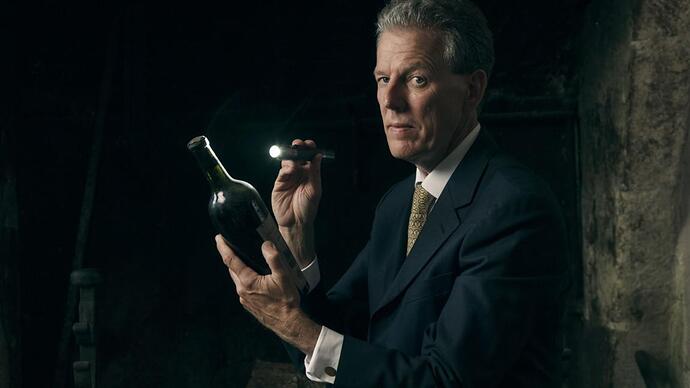I’m afraid the article doesn’t paint an accurate picture of what’s happening. There are three different motions. One motion seeks to dismiss two of the AWC entities on the grounds of lack of personal jurisdiction. The claim is that two of the AWC entities have never done any business in the US and one of them hasn’t been a “trading” company since 2001, which I suppose is English parlance for not engaged in the sale of wine.
The second motion is styled as a motion to dismiss based on forum non-conveniens. There are several arguments made here. The primary one is that one of the agreements in question (the 2010 agreement concerning the consignment of LeCraw’s wines for sale) has an exclusive venue clause requiring all disputes to be resolved before the UK courts. AWC also argues that the claims arising from the 2006/2007 sales (the bottles of old Yquem and Lafite that LeCraw contends are counterfeit) are governed by language that was allegedly posted on the AWC website at the time of sale which AWC says provided for non-exclusive jurisdiction before the UK courts. (That would mean jurisdiction would be proper in any country with factual connection to the transaction, so it wouldn’t require a US court hearing a claim by the US purchaser to find that the case shouldn’t be heard in a US court.) AWC argues that all of the witnesses are located in Europe or Asia and that the case should therefore be sent to the UK. In my opinion, most of the arguments in this motion are oversold by AWC, but the fact that there is an exclusive jurisdiction clause for the 2010 agreement would suggest that AWC is likely to be successful on having those claims dismissed based on forum non-conveniens. (So don’t be surprised if LeCraw abandons part of his claims in an Amended Complaint in an effort to keep the case in Federal court in Atlanta.)
Once again there is a huge discrepancy in the factual allegations between the parties. According to LeCraw’s complaint, he alleges that he consigned over 200 bottles, mostly in large format to AWC in 2010 and that AWC has failed to pay for or account for more than $3 million in wines. According to AWC’s latest motion, it paid $500,000 to LeCraw for certain wines that were outright purchases under the agreement on September 3, 2010. AWC also states that between November 2010 and January 2012 it sold the majority of the bottles consigned by LeCraw (for which it was receiving a 40% commission) and sent to LeCraw wire transfers totalling $658,855.00. AWC claims that it has only 6 bottles of LeCraw’s wines which remain unsold and that it has offered to return them to LeCraw, but that he has declined to do so. If AWC is to be believed, there are only six bottles sitting in the UK which are subject to the exclusive jurisdiction of the UK courts, the value of which is unspecified. This contrasts with LeCraw’s claims for damages of more than $3 million and his assertion that the great majority of the bottles he consigned are unaccounted for. To say that there is a credibilty gap here is a substantial understatment.
The third motion is a motion to dismiss many of the long list of claims in the complaint for various pleading defects pursuant to Rule 12(b)(6) of the Federal Rules of Civil Procedure. These motions are commonplace in large stakes litigation and virtually guaranteed where anyone brings a RICO claim. As I’ve noted in the other thread concerning this lawsuit, the LeCraw RICO claims had some rather obvious shortcomings. But other aspects of the AWC 12(b)(6) motion seemed like a bit of a reach.
To editorialize a bit, this is a case where there seems to be a lot of embellishment – on both sides. This is one of those cases that makes Judges reach for their Rolaids.


